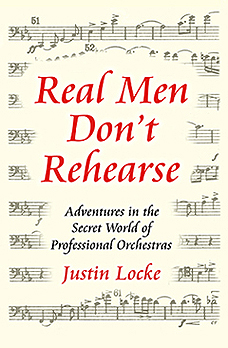It occurred to me today that the Internet and the major used book resellers (i.e., Amazon and half.com) have fundamentally changed the book business very much in the same way that television and VCR’s changed the movie business.
For those of you who don’t remember, when television came along, Hollywood viewed it entirely as a threat. But after a while, they figured out how to take advantage of this new medium, and now, big Hollywood movies make most of their money from television and DVD sales. It’s a classic case of “if you can’t beat them, exploit them.”
Pardon my vision here, but I think something very similar could happen between the traditional book business and the Internet. And no, I’m not talking about kindles.
The traditional book selling establishment has at its core a business model based on making profit by selling brand new books, period, just as movie moguls once only made money through ticket sales at theaters.
(There have always been used bookstores, of course, but since customers of such stores could not buy any book they wanted, they had to pick from available inventory, and popular books were generally not available, it was a fringe market that didn’t mean that much.) But with the Internet, the used book market has become what television was to the movie business in the 50s. It offers virtually the same amount of value in terms of content as the new book market.
At the moment, like a past generation of Hollywood executives, everyone is bemoaning this fact and envisioning the end of books entirely. I beg to differ. I think there is a fantastic opportunity here.
Instead of viewing the Internet used book market as a threat, let’s team up with this new medium. Just think, if every book that was printed was read by 15 people, well, it may sound idealistic, but that’s an awful lot of trees that would not get cut down. There is a tremendous impetus in terms of saving trees, saving pollution, saving carbon emissions, and so on, by actually encouraging the reading of used books.
Now here’s the problem: as an author/publisher, right now I only make money from the initial sale of a new book, and so I am in an economic position where I must advocate for the cutting down of as many trees is possible (and converting them into copies of my book), as that is the only way I can make money in the current system. But since every book has a unique ISBN number, it really wouldn’t be all that hard to institute a system where the copyright owner of the intellectual property contained in a physical book would get some small percentage of every resale of a book on the Internet. This would not have been possible in the pre-Internet age, but now it would be incredibly easy to do.
For mainline book publishers, this would introduce a new marketing opportunity, which would be emphasizing the “resale value” of a given book. You probably wouldn’t mind paying $100 for a book if you knew you could read it and re-sell it for $89 in two weeks.
The best part of the system is the potential for improved quality… of both the content and the physical book itself. Quality would take on a much higher priority. Instead of the current pump and dump “big marketing blitz” business model that is so common for books, the focus might shift a little bit to books that have a little more staying power.
(I am ashamed to say, that I’ve actually pondered ways to somehow design obsolescence in to the physical books I sell so they will fall apart after being read five times, forcing someone to buy another new book. This was a philosophy of Detroit carmakers in years past, and look what it got them.)
I can’t say that would work for sure, but it certainly might. I have started with a new page on my web site that invites people to start doing this on a voluntary basis. I call it might go green publication partnership. http://justinlocke.com/gogreen.htm

I really don’t see a downside here… big publishing houses could make a fairly high markup on the initial sale, authors would get more royalties downstream, book buyers and readers would probably end up paying less per book than they do now… And, it’s really not right for people to resell a book and not give some of that to the copyright owner. The movie and music industry has been all over this. Now that books can be read and sold in the digital realm, it’s time for the book business to catch up.
I am going to start by writing my congressman. Any other ideas?
© Justin Locke
